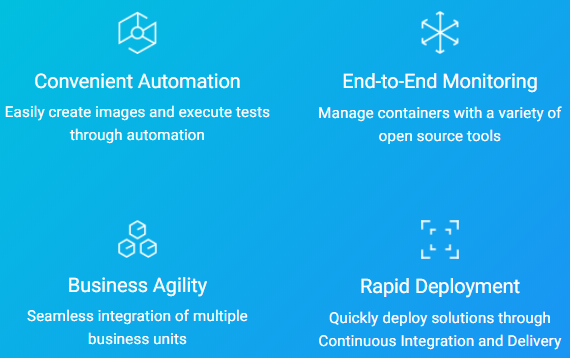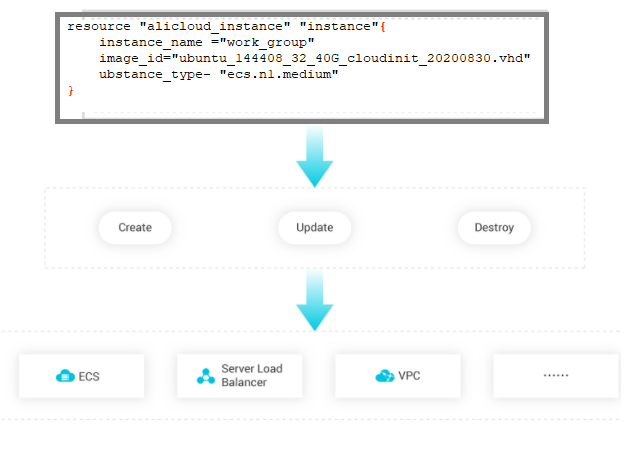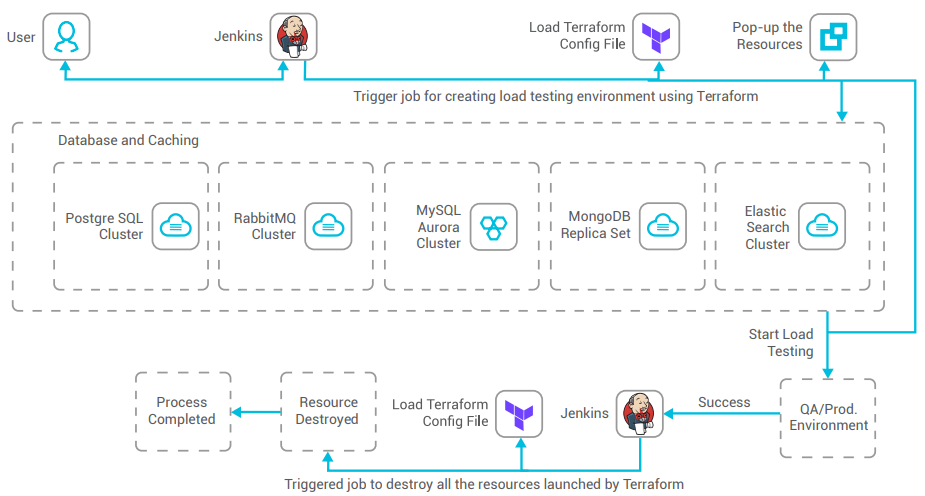By Shantanu Kaushik
DevOps in today's transforming world presents itself as an integral part of Digital Transformation. This ITSM (IT service management) based framework is a part of an understanding that incorporates a workforce philosophy that demands and rests on a well-lubricated collaboration among teams. Most of the organizations today expect to increase their productivity and handle the competition to adapt to changing market scenarios. They will need to adopt newer methods, tools, and services for a better and smarter business sense. Alibaba Cloud has been one of the front runners in developing and adopting such transformations. That is why their work with DevOps has led to an increase in productivity and settlement of many organizations seeking Digital Transformation trends and practices.
DevOps and the cloud have had a symbiotic relationship. These two go hand in hand to provide businesses and organizations ways to achieve their transformation goals. In our previous article of the series, DevOps was introduced and explained to its core. In this article, we are moving ahead and introducing DevOps tools, key findings, how Alibaba Cloud has implemented DevOps practices, and how to avail them with ease.
Just a quick reminder, you can become an Alibaba Certified DevOps Engineer. This course helps you learn the fundamentals of DevOps workflow and explains the tools needed to release your software applications faster and more reliably.
Organizations will define DevOps based on their utilization. Developers are provided with self-service catalogs and established-technological pipelines that help them deploy applications to stipulate the infrastructure's needs. Developer centric organizations will define DevOps as a tool for developer-friendly operations.
Alibaba Cloud has come up with solutions to support and enable organizations that have realized the urgency to develop new and unified development and delivery models. In this article, we will call it the Alibaba Cloud DevOps methodology.
This Methodology has given way to:

In this two-part article, we will be introducing the key-findings related to DevOps in 2020 and the Alibaba Cloud DevOps tools associated with it.
The year 2020 has been filled with challenges. During these difficult times, technology has played its part to maintain a certain sense of stability for businesses. DevOps has been the prime mover for crucial models of development and delivery within the SDLC (Software Development Lifecycle) pipeline.
Observations
Moving away from the year 2020, having a better understanding of tools and services offered by Alibaba Cloud is certainly something that we need to focus on. Alibaba Cloud is coming up with better tools and solutions every day and increasing support for the most in-demand DevOps tools out there. Now, let's talk about some of Alibaba Cloud's DevOps tools.
Terraform is an open-source DevOps automation tool used for manipulating infrastructure in terms of building, versioning, and changing. It is used to organize APIs into configuration files that can be shared with team members responsible for coding, reviewing, modifying, and versioning.
Alibaba Cloud provides Terraform as a tool to efficiently codify an entire data center. It can form execution scenarios and determine any changes in the desired state. It also provides an ability to obtain the desired state. Terraform uses its own language, called HashiCorp Configuration Language (HCL.) Using this language allows you to manage components like compute instances, storage, and networking.
Let's take a look at the image below to better understand the functionality of Terraform:

Using Infrastructure as Code is the basis for any operation to cut down the total time spent on it. By using Alibaba Terraform, the developer can easily provision all the needed resources without having to go through the tedious process of provisioning everything manually. With that, Terraform also enables the developer to kill any resources that are not needed and an ability to share and reuse such resources. This enables the versioning of a data center.
To sum up, Alibaba Terraform IAC provides us with functionality to:
Let's take a look using a graph to see exactly how this works. We will be referencing Jenkins, another automation tool that we are going to discuss.

Jenkins is an open-source automation tool that is used for deploying, testing, delivering, and building application/code. Alibaba Cloud Container Service incorporates the extensible features of Jenkins for Continuous Delivery (CI) operations.
Continuous Integration (CI) tools are used when developers from around the globe work with an application code at the same time. When they make changes to different parts of an application code, Jenkins works to solve any problem that might arise due to fragmented workflow procedures.
Jenkins helps the dev teams overcome issues associated with build failures that can happen after multiple changes to the application code.
Alibaba Cloud offers multiple products that are proven to work with an elastic tech-set of features, like the Elastic Compute Service (ECS). This is just one of the cloud-based products, but the range of products offered and integrated, especially with DevOps in mind, produces and provides an environment best suited for development and operations.
Jenkins is a CI server that also serves as a Continuous Delivery (CD) source. It supports a number of plugins and has set a standard for CI/CD operations. Jenkins supports automatic testing operations and enables quick identification of bugs. All this saves time and expenses with an efficient team system.
Alibaba Cloud services and DevOps tools that I used to achieve CI/CD operations or to use Infrastructure as Code, provided me with a certain value in terms of cost-cutting and a more reliable development process. With that, you can easily incorporate almost any open-source DevOps plugin by simply installing it from the repository. In one of our next articles, we will showcase the process of installing a complete instance using Alibaba Cloud services like ECS and setting up a VPC. Stay tuned for more!
The views expressed herein are for reference only and don't necessarily represent the official views of Alibaba Cloud.
DevOps for the Cloud: Key Findings and Introduction to Automation Tools - Part 2

2,599 posts | 764 followers
FollowAlibaba Clouder - September 1, 2020
Alibaba Clouder - September 9, 2020
Alibaba Clouder - January 27, 2021
Alibaba Clouder - January 27, 2021
Alibaba Cloud Data Intelligence - August 14, 2024
Alibaba Clouder - August 14, 2020

2,599 posts | 764 followers
Follow DevOps Solution
DevOps Solution
Accelerate software development and delivery by integrating DevOps with the cloud
Learn More Alibaba Cloud Flow
Alibaba Cloud Flow
An enterprise-level continuous delivery tool.
Learn More Container Service for Kubernetes
Container Service for Kubernetes
Alibaba Cloud Container Service for Kubernetes is a fully managed cloud container management service that supports native Kubernetes and integrates with other Alibaba Cloud products.
Learn More Function Compute
Function Compute
Alibaba Cloud Function Compute is a fully-managed event-driven compute service. It allows you to focus on writing and uploading code without the need to manage infrastructure such as servers.
Learn MoreMore Posts by Alibaba Clouder